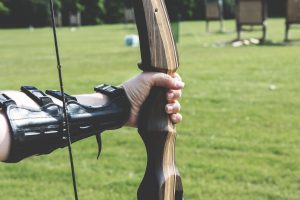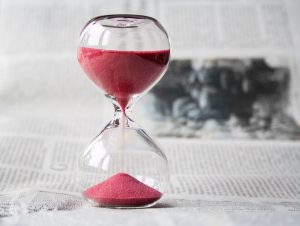Excellence Takes Time
 It has been suggested that a minimum of 10 years of practice (sometimes stated as 10,000 hours) is needed for expert performers in any field to reach the elite level (Ericsson, Charness, Feltovich, & Hoffman, 2006). Other evidence indicates that elite athletes require at least 11 to 13 years of practice to reach levels of excellence (Gibbons, Hill, McConnell, Forster & Moore, 2002).
It has been suggested that a minimum of 10 years of practice (sometimes stated as 10,000 hours) is needed for expert performers in any field to reach the elite level (Ericsson, Charness, Feltovich, & Hoffman, 2006). Other evidence indicates that elite athletes require at least 11 to 13 years of practice to reach levels of excellence (Gibbons, Hill, McConnell, Forster & Moore, 2002).
The essential lesson is the same: there are no shortcuts to achieving excellence.
Participant development is a long-term process and elite participants will require approximately a decade or more of practice to achieve international standing. As part of this process, short-term performance goals must never be allowed to undermine Long-Term Athlete Development (Viru, 1995).
 For some sports, the road to excellence is not paved in hours, but through deliberate practice repetitions. Shooting or archery would be measured in number of shots an athlete has taken; golf would be measured in number of swings; in parachuting, an athlete’s excellence is related to the number of jumps.
For some sports, the road to excellence is not paved in hours, but through deliberate practice repetitions. Shooting or archery would be measured in number of shots an athlete has taken; golf would be measured in number of swings; in parachuting, an athlete’s excellence is related to the number of jumps.
The United States Olympic Committee’s The Path to Excellence study (Gibbons et al., 2002) provides empirical evidence and a comprehensive view of the development of U.S. Olympians who competed between 1984 and 1998. The results reveal that:
- U.S. Olympians begin their sport participation at the average age of 12.0 for males and 11.5 for females.
- Most U.S. Olympians reported an 11- to 13-year period of talent development from the time they began their sport to when they made an Olympic team.
- U.S. Olympic medalists were younger than non-medalists by 1.3 to 3.6 years during the first five stages of development, suggesting that medalists were receiving motor skill development and training during the skill hungry years.
 Lately, the validity of the 10,000 hours has been questioned. It has been suggested that when athletes specialize in certain sports, they can achieve excellence in a much shorter period (Tucker, 2012). However, the three or four other sports the athletes participated in before they specialized has usually not been taken into account. Long-Term Athlete Development emphasizes a multi-sport approach: all former activities should be included as they are an integral part of the 10,000 hours. Whether it is 10,000 hours, more, or less, excellence always takes time.
Lately, the validity of the 10,000 hours has been questioned. It has been suggested that when athletes specialize in certain sports, they can achieve excellence in a much shorter period (Tucker, 2012). However, the three or four other sports the athletes participated in before they specialized has usually not been taken into account. Long-Term Athlete Development emphasizes a multi-sport approach: all former activities should be included as they are an integral part of the 10,000 hours. Whether it is 10,000 hours, more, or less, excellence always takes time.
Source: Sport for Life – Long-Term Athlete Development Resource Paper 2.1
Original authors of the Canadian Sport for Life – Long-Term Athlete Development Resource Paper 1.0: Istvan Balyi, Richard Way, Dr. Colin Higgs, Dr. Stephen Norris and Charles Cardinal.
